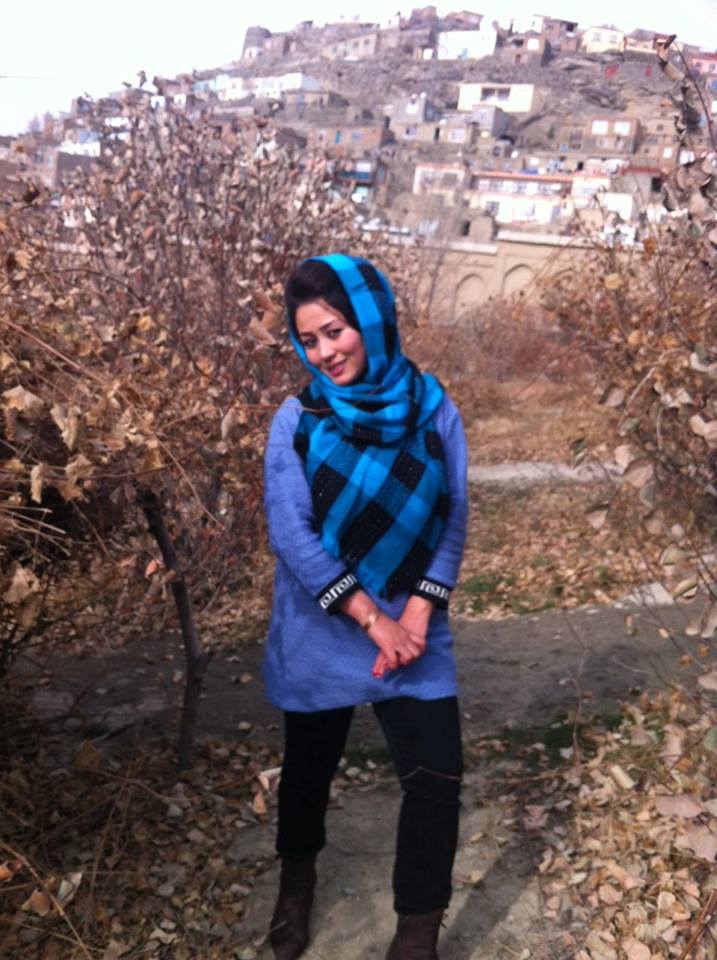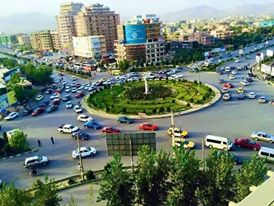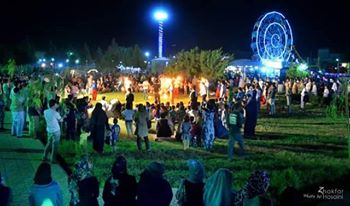
Mona Hossaini ‘Araste’
I had three options to choose from to pursue my post graduation: Iran, Russia and Kashmir. And I choose the last one because of the interesting course offered: Kashmir and South Asia Studies. It was an interesting choice given the history of the place I hail from (Afghanistan) and the place I have chosen to be in i.e. Kashmir. Both the places have their own painful history of conflict. Over the years people living in conflict zones get adapted to words like, war, conflict, instability and uncertainty. These things become part of our daily lives. For us peace is an elusive term. I always wonder if peace is a reality or just a utopian concept. The reason I chose this subject was I wanted to find solutions to my country’s instability and also search for lasting peace!

The new-generation Afghanis have learned from their elders that the only way forward towards a stable future is through education. Our generation is fed up of living in an atmosphere of chaos and uncertainty. I feel an Afghani, studying outside his country, carries that element of uncertainty and fear along like a curse. There is no peace even if you are away from your home. Then there are stereotypes created and promoted by the media about Afghanistan that are far from reality. I agree things are pretty bad in Afghanistan, but not completely out of hand as projected.
After spending a few months in Kashmir I realized we have more than conflict and painful memories, of our brutalized past, in common. Both Afghanistan and Kashmir has become a playground of nuclear armed superpowers. They fight their wars at the cost of our lives without a concern about our culture and social values. These experiences helped me strike an instant cord with helpless Kashmiris.
Afghanistan has a rich history that dates back to some 5000 years. The stories from this mountainous region have been part of the Indian subcontinent folklore for long. People still talk about Kabuliwala. Telling you frankly, Kashmir has been central to our culture since ages; our kids still go to sleep reading Shahnameh Ferdowsi, they still enjoy poems of Khaja Hafez Shirazi.
We still read Saadi Shirazi and Maulana Jalaludin Rumi, to understand social behaviour. The first Pashtu phrase about Kashmir that came to my mind was: Har Chata Ekhpel Watan Kashmir De (For everyone, their country is like Kashmir).

So the picture of Kashmir in my mind was nothing less that a piece of paradise on earth dotted with snow clad mountains, emerald green meadows, lakes reflecting sunset and moonlights.
Interestingly, the first person I got to know after I reached Delhi was a Kashmiri. We were staying at the same guesthouse in Delhi.
She was happy to learn that I was going to Kashmir. She was the first person to accept me as part of her family and called me her sister. Instantly I started looking beyond media created Kashmir. I realized that Kashmir is full of beautiful people with beautiful hearts.
Just like Afghanistan, people in Kashmir have also grown reading Persian literature. So we share a culture that has its roots in Persia.
Kashmiri culture is highly influenced by Sufism. A number of beautiful shrines in Kashmir belong to or are dedicated to famous Sufi saints. The idea of oneness that Sufism promotes is visible on top of Koh-e-Maraan – highest point in Srinagar – where three major religions converge. There is a Sufi shrine, a Guruduwara and a Mandir. Such harmony is a rare sight. However, it is unfortunate that only elderly people remember history and enjoy talking about it with pride. The young generation is busy in politics. On my visit to Koh-e-Maraan, I talked to a number of elderly people who were elated to learn about my Afghani origin. They talked about similarity in our culture, about how Afghan king ruled Kashmir and how Kashmir has been influenced by Central Asia and Persia.

They all greeted me with beautiful smiles and one of them even shared a poem of Hafez. That interaction motivated me to mingle more with Kashmiris. With each interaction I came to know that how Western media has fed people negative images of my country. I often came across people who think Afghanistan is a poor and backward country where women are not at all educated, and where conflict rules everything. It pains to see how media has stereotyped both Afghanistan and Kashmir.
There is a need to transcend these cultural boundaries and bring Afghanistan and Kashmir together once again.
I feel at peace when I walk around lush green gardens in Kashmir University. And when I look at Zabarwan hills from my hostel window, it transcends me to a faraway place called Kabul. A ride in a beautifully decorated Shikara in Dal Lake reminds me of Qarqha Lake in Kabul.
Even the sweet waters of Pahalgam are familiar; they remind me of Paghman in Kabul. The apple orchards outside Srinagar make me relive memories of Bamyan.

Kashmiri houses decorated with local rugs are too familiar; it makes you feel like you are home.
One of the most exciting experiences here was when I attended a friend’s sister’s wedding. It was like attending a wedding back home. Not for a single moment I felt out of the place. Even the style of welcoming guests is similar: we welcome them by saying Habib Khoda (God will love you if you have a guest). Though decorations and other customs seem highly influenced by Indian culture, but still it is unique. The best thing was when girls began signing for the bride using Tumbak Naaris – a cone shaped Kashmiri musical instrument. It was a treat to see girls perform Rouf – a type of traditional dance sequence mostly performed on marriages. There are so many similarities between Afghanistan and Kashmir that I have lost the count. Even the music is familiar.
Visit to Manasbal Lake is one of the memorable days in Kashmir so far. I was left speechless by its beauty. The rays of sun falling over water and occasional showers made it more magical. We even visited a few local houses in the vicinity. I love the way people here treat their guests. I often visit my local classmates’ homes and have lunch with their families. I simply love the way Kashmiris cook their food, especially meat and Waazwan. Trust me I am a big fan of Nun Chai (salted pink tea); back home we call it Shor Chai.
I take leave with Hafez’s Ghazal:
O fragrant morning breeze! The Beloved’s restplace is where?
The dwelling of that Moon, Loverslayer, Sorcerer, is where?
Dark is the night; and in front, the path of the Valley of Aiman:
The fire of Toor where? The time and the place of promise of beholding is where?
Whoever came to this world hath the mark of ruin:
In the tavern, ask ye saying: “The sensible one is where?”
A resident of Bamyan Afghanistan, Mona Hossaini ‘Araste’ is pursuing Masters Degree from University of Kashmir.















